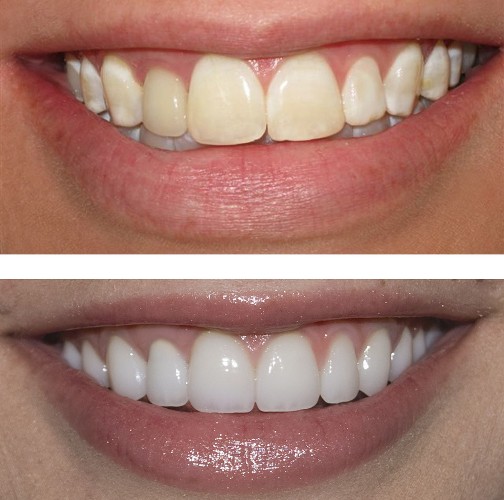
Teeth Whitening
Whitening is a process where the tooth discolouration is ‘whitened’ to a lighter shade. It removes the staining agent through chemical means. It is a safe procedure when carried out under professional supervision. Treatment results usually depend on the severity of the discolouration. Both vital (i.e. live) and non-vital teeth (e.g. tooth with root removed) can be bleached and may take several visits to complete. It is not effective on dental restorations such as amalgam fillings, metal or porcelain crowns, etc.
Teeth can discolour for various reasons. The dentist will recommend the most ideal method based on your oral condition after an in-office examination to establish the cause and nature of your tooth discolouration, as well as provide you with more information on the various types of whitening procedures available, duration & frequency of treatment.
Dentures
Dentures are removable prosthesis used to replace missing teeth. Commonly referred to as ‘false teeth’, a denture is usually made of acrylic or a combination of acrylic and metal. Partial and Complete Dentures replace the missing hard and soft tissues following loss of teeth, restoring function and facial proportions within physiological limits.
Working together with our own specialist laboratory, we can provide natural looking removable dentures with optimal stability and function. We can use a variety of techniques to complement your natural smile. We can also help determine if the placement of dental implants will be possible to improve your experience with dentures, allowing you to enjoy improved confidence with your dentures.
A good set of dentures helps you to eat, speak, function, and often improves a person’s appearance.

